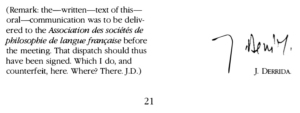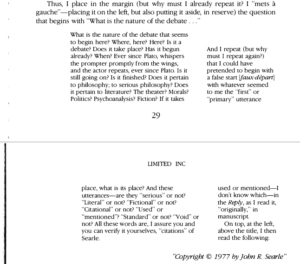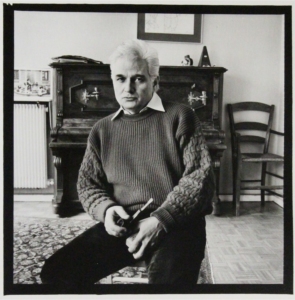
Interchange II: Closing Remarks
Another way to get at this is just to say that the identification of what the text means with what the author intends is already in place without our having any recourse to a theory of intention or to a positive account of intention as a mental state. While the work that it does in place—determining the act—makes clear the mistake in imagining that the text we write could be either controlled by or liberated from what we meant.




